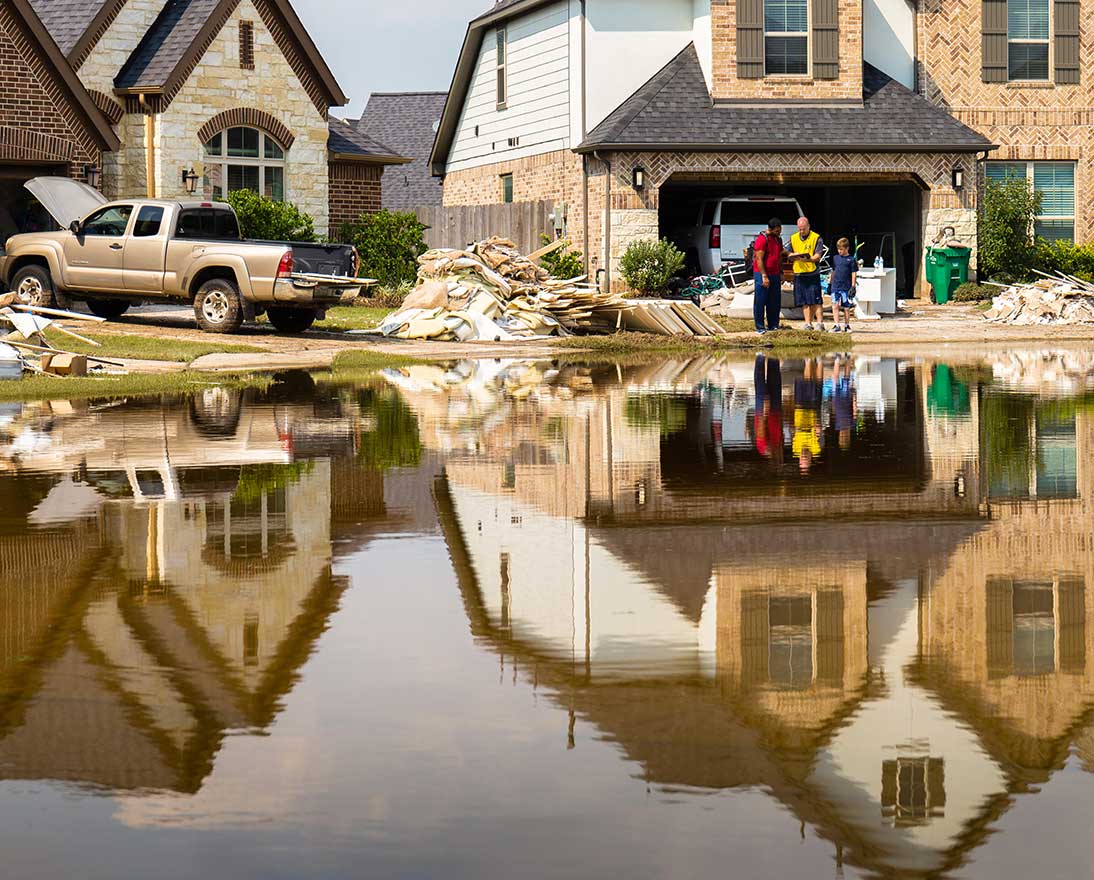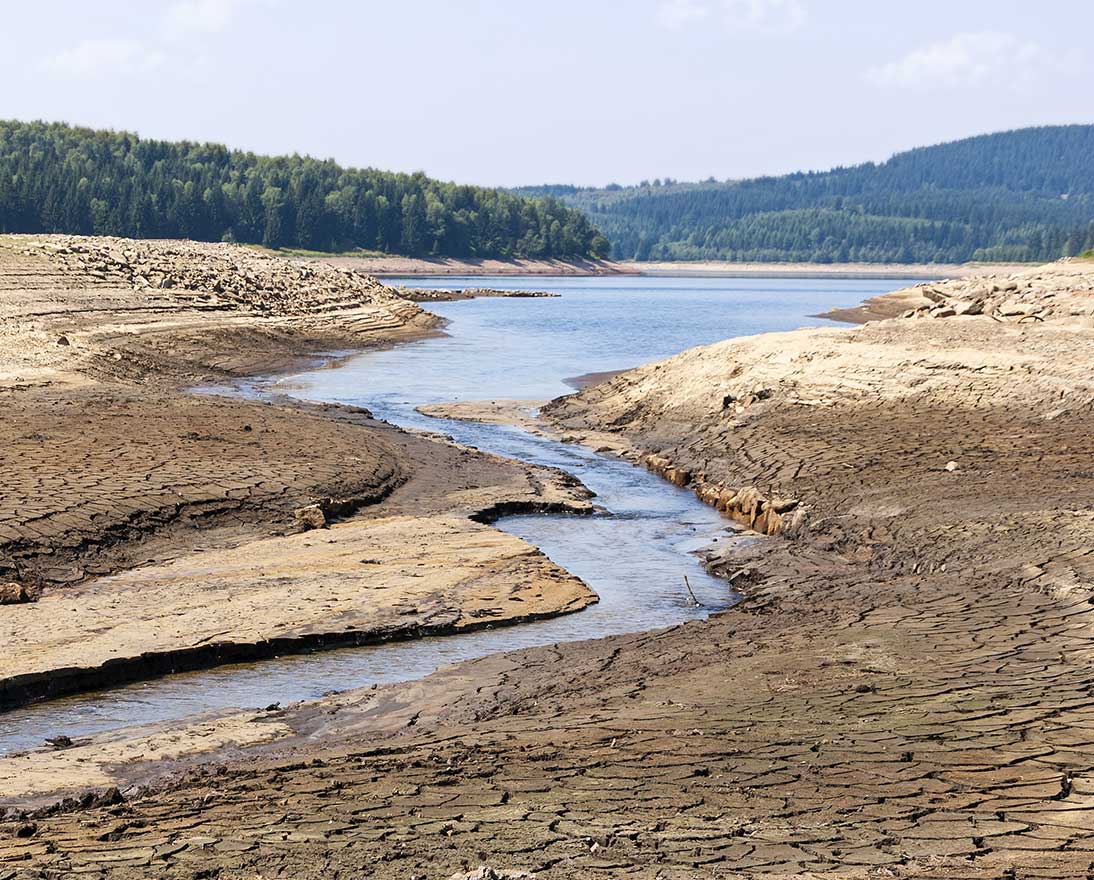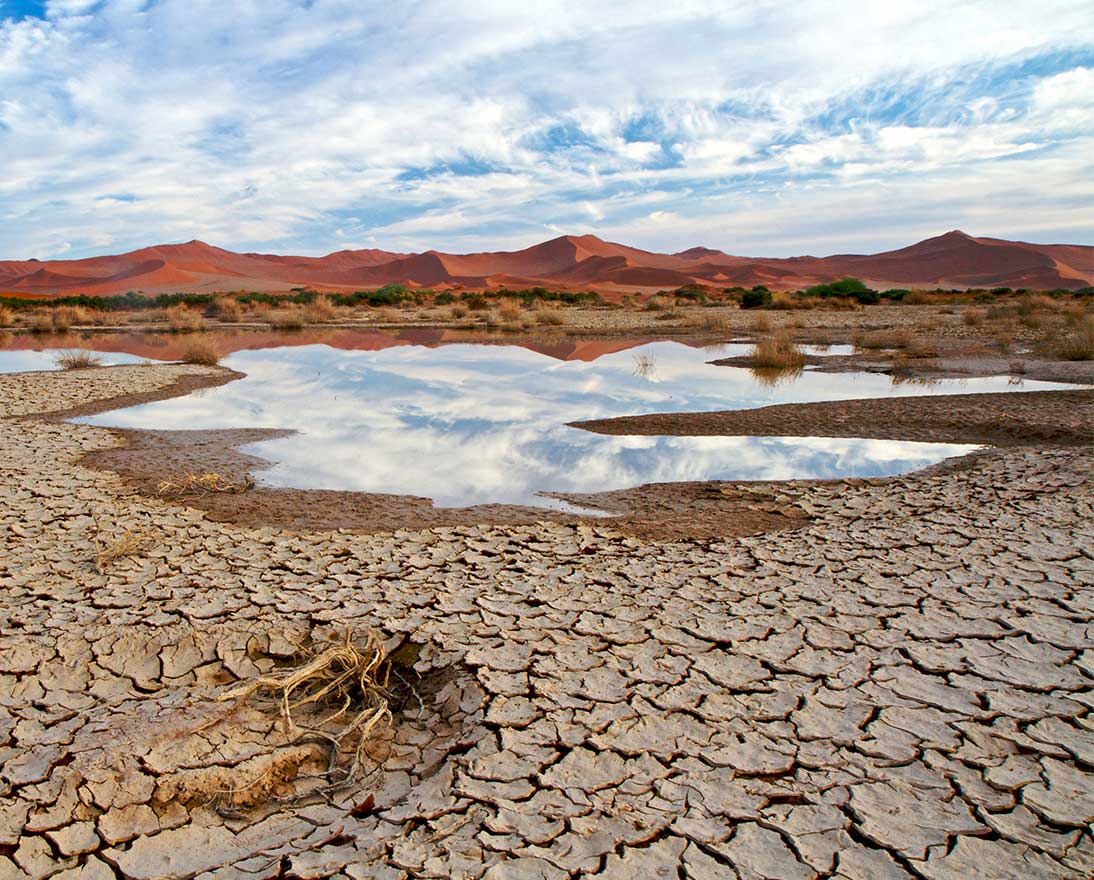Why businesses should care about biodiversity
Climate resilienceArticleNovember 16, 20216 min read
Our biodiversity is under immense threat. It is the life support system for humanity. This is why you should care and what you should do.
Biodiversity is not a buzzword. It is vital to our planet. It is vital to the future of humanity. And so, it is vital to the future success of your business, your industry and the whole global economy. The value of goods and services provided by ecosystems is estimated to be worth USD 125-140 trillion per year. If you’re only motivated by dollar signs, then that number alone should make you consider biodiversity.
But it’s under immense threat. Biodiversity is declining faster than at any time in human history. And that development is being driven by human activity.
We are exploiting our natural resources through harvesting, logging, hunting and overfishing; but we also pollute them from untreated waste and industrial pollutants to oil spills and marine plastic pollution.
Agricultural and industrial practices cause deforestation, pollution of groundwater, the loss of wetlands and coral reef collapse, which means that around 1 million animal and plant species are threatened with extinction, many within decades, according to Intergovernmental Science-Policy Platform on Biodiversity and Ecosystem Services (IPBES).
What will be the impact of this destruction? We cannot be sure. But as the COVID-19 pandemic showed us, all life is connected, a disruption in one part of the world will have ripple effects in another.
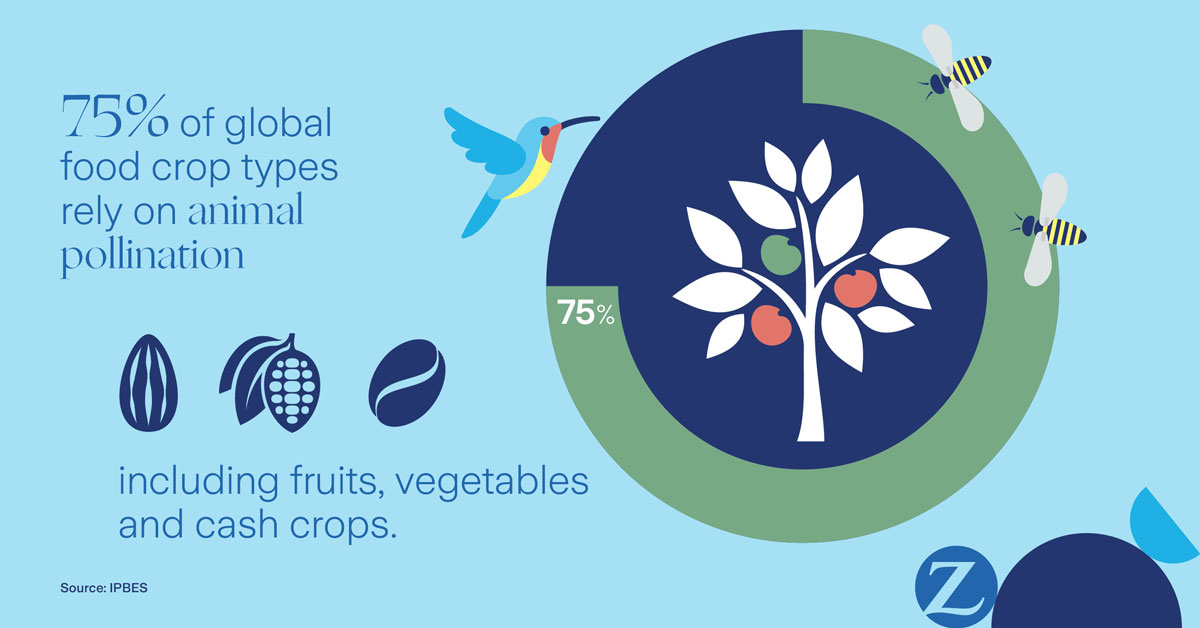
Humanity’s life support system
Biodiversity is the life support system for humanity. It underpins the world’s food system; sustains the quality of the air, fresh water and soils; distributes fresh water; regulates the climate; provides pollination and pest control; absorbs carbon emissions and reduces the impact of natural hazards.
For example, according to IPBES more than 75 percent of global food crop types, including fruits, vegetables and cash crops, such as coffee, cocoa and almonds, rely on animal pollination.
Biodiversity also provides basic raw materials and medicines. IPBES estimates that 2 billion people rely on wood fuel to meet their primary energy needs, 4 billion people rely primarily on natural medicines for their healthcare, and 70 percent of drugs used for cancer are natural or are synthetic products inspired by nature.
This is why the World Economic Forum’s 2021 Global Risks Report ranks biodiversity loss in the top five risks in terms of likelihood and impact for the second year in a row.
Why should business care?
“Companies are dependent on biodiversity. The level of dependency can vary across sectors, but the loss of biodiversity is a critical risk for all,” explains Peter Giger, Group Chief Risk Officer at Zurich Insurance Group.
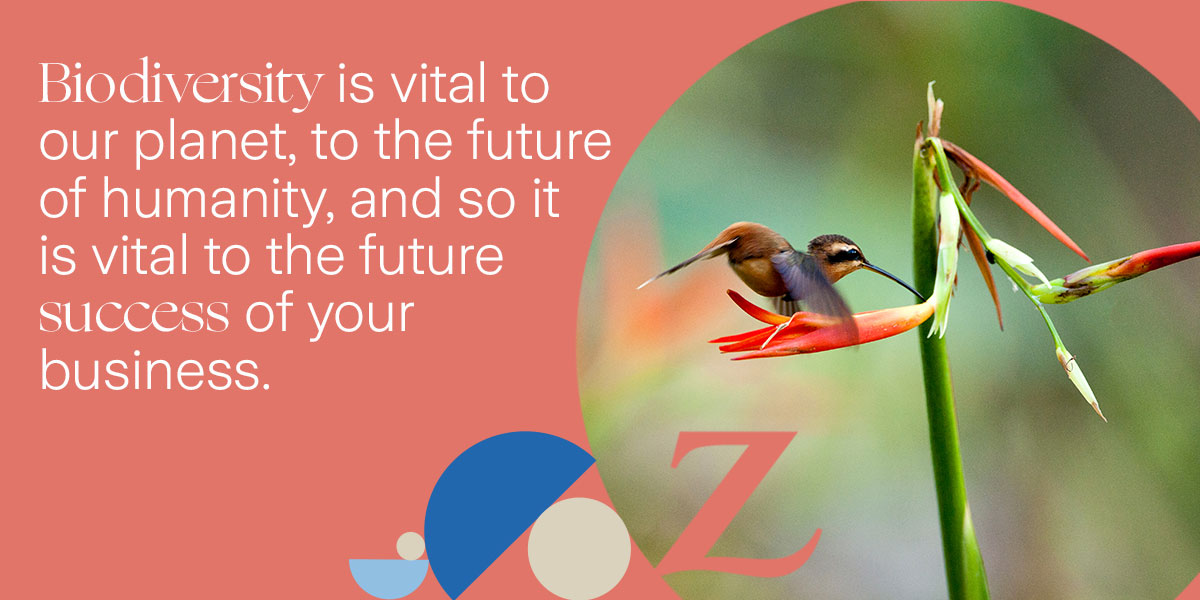
“The destruction of nature will inevitably impact bottom lines, for example through reduced fish stocks and food supplies, the disruption of commodity supply chains, economic losses from natural hazards, and the loss of potential new sources of medicine and raw materials,” says Giger.
There are also indirect risks that businesses should consider. For instance, biodiversity loss poses reputational, regulatory and financial risks to businesses.
“You have to look at the interconnected risks because your impact may be more far reaching than you might think,” says Eugenie Molyneux, Zurich’s Chief Risk Officer for Commercial Insurance.
“Take a shoe manufacturer, for example. They may think biodiversity loss has nothing to do with them but where do they get their leather? Is their supplier clearing forest to raise cattle? Was there an impact on biodiversity as a consequence?
“Just as a company can be sued for polluting a water supply, it’s perhaps not an extreme scenario for a similar litigation to be applied to biodiversity loss. This is an issue for every single one of us – businesses, governments and individuals – and everyone has to play their part,” says Molyneux.
But how can business play its part? Giger says businesses should develop metrics to assess their interaction with the environment and impact on biodiversity, including greenhouse emissions, water use, water and air pollution, land-use change and solid waste.
“Once you understand the value of nature to your business, then you can prioritize actions to mitigate the impact of biodiversity loss and identify supply chain and sourcing practices that deliver positive outcomes for nature,” says Giger.
Companies can also play a critical role in protecting biodiversity by supporting external conservation efforts. Zurich, for instance, is supporting non-profit Instituto Terra to plant 1 million native trees as part of the ‘Zurich Forest’ project in Brazil’s Atlantic Forest.
“It’s not just about the avoidance of risk,” says Molyneux. “There are plenty of opportunities available to companies that act responsibly on their biodiversity impact. Many are now focusing on regenerative agriculture, diversifying their usage of ingredients and crops, and enhancing the management of natural ecosystems.
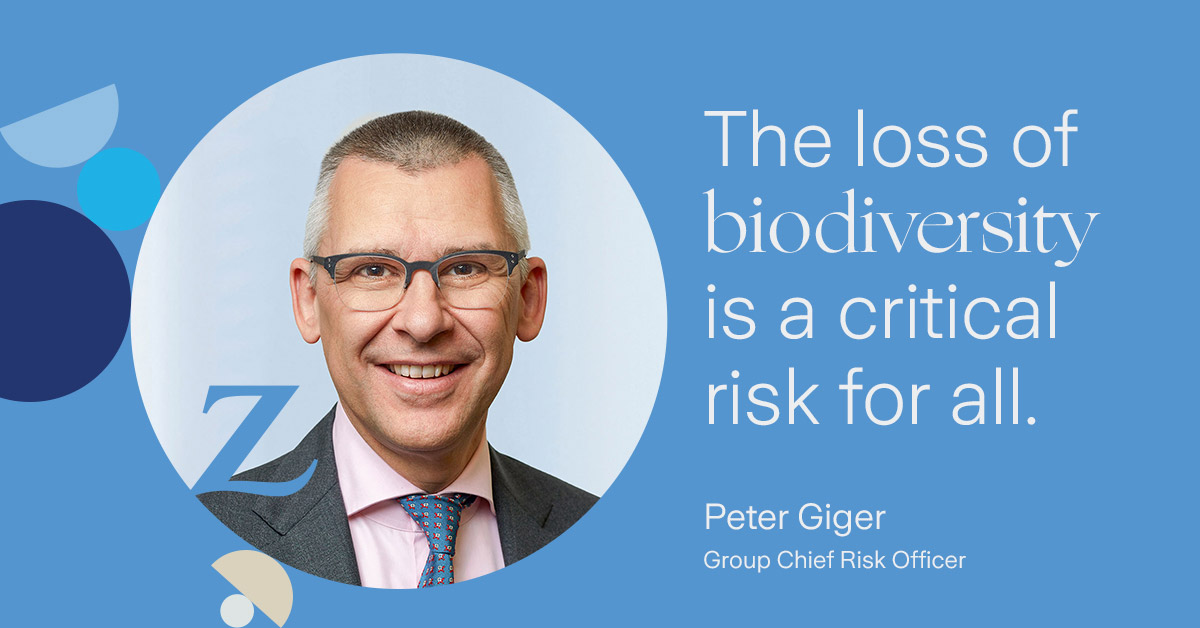
“Others are capitalizing on the growing interest in organic food and drink, ecotourism, and eco fibres in the textiles and fashion industries.”
Twin challenges
There has rightfully been a lot of attention on the 26th UN Climate Change Conference (COP26) in Glasgow, UK. But the reorganized 15th UN Biodiversity Conference (COP15) in Kunming, China, which takes place in April/May, deserves just as much attention. It will be the biggest biodiversity summit in a decade, where it is hoped countries will agree on targets for species protection and sustainable land management.
Climate change and biodiversity loss are twin global challenges. Businesses should consider them in a coordinated manner. Climate change can undermine efforts to conserve and sustainably manage biodiversity, while our biodiversity offers some of the most effective mitigation and adaption solutions to climate change.
“If we do not change our behaviors then the degradation and destruction of our biodiversity will continue unabated, which will further damage human health, economies and societies,” warns Giger.
“But if we learn to conserve, restore and use our biodiversity fairly and sustainably, then we will be able to continue to access an array of wonderful natural resources. Not just for now, but for many more generations to come.”


